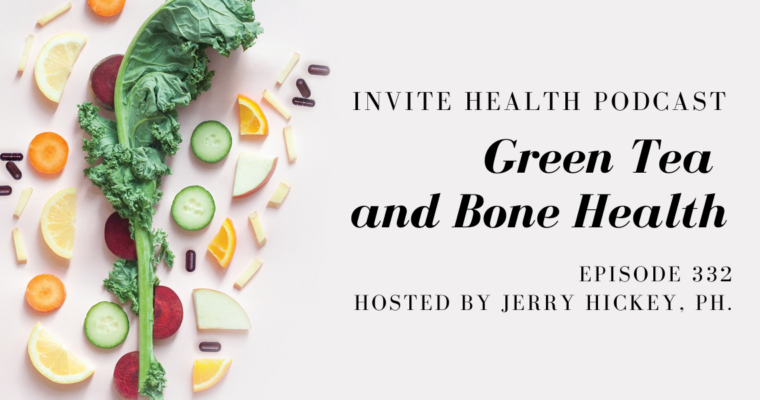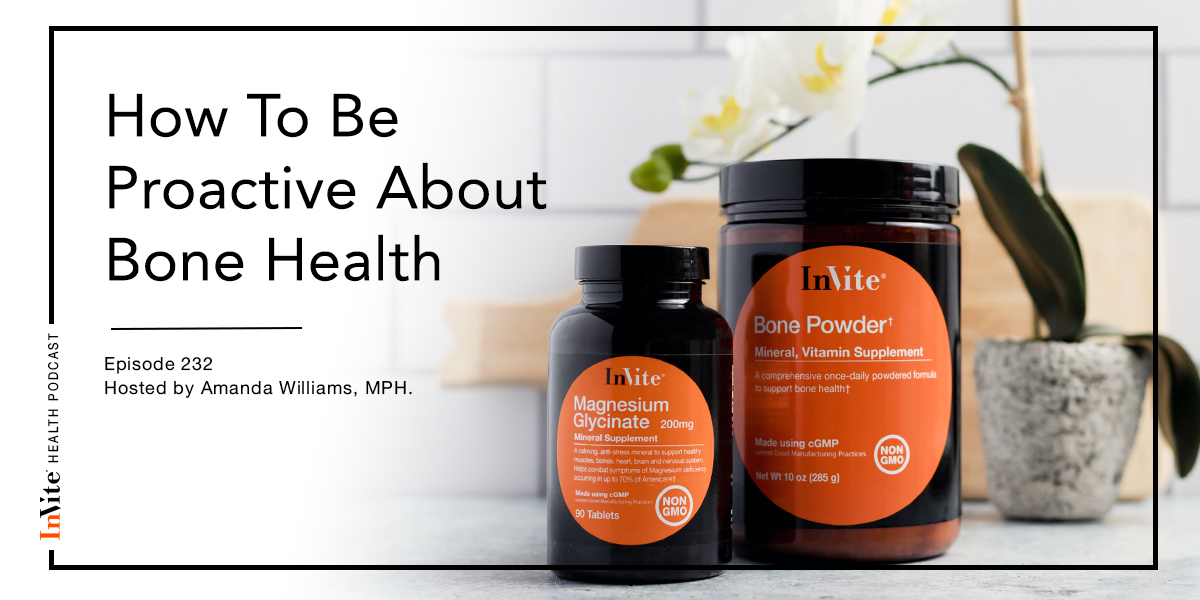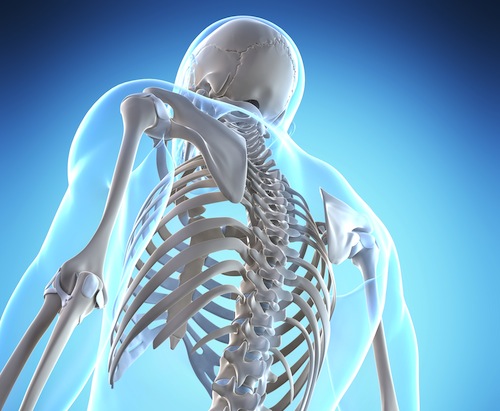bone health
Invite Health Podcast, Episode hosted by Amanda Williams, MPH.
Subscribe Today!
The older we get, the weaker our bones can become. We certainly know that this is a problem within this country when we look at which osteopenia and osteoporosis are affecting so many Americans. Osteoporosis is considered a silent disease because you don’t feel that your bones are getting weaker. This is just something that you recognize once you break a bone or if you have a bone density test done. Approximately 10 million Americans have osteoporosis and another roughly 45 million Americans have osteopenia, which is the category below osteoporosis. This is a major problem and I want to talk specifically about what we need to focus on when it comes to maintaining healthy bones as we get older.
Why does bone health matter?
There are different steps that we can implement to try to improve our bone health and to try to prevent osteoporosis and broken bones as we get older. There are a couple of nutrients that we can point out when it comes to bone health and those are Calcium and Vitamin D. However, most Americans are not getting enough of these nutrients from their diet because they follow a Standard American Diet, which is not going to be a good source of the key minerals that we need in order to maintain our skeleton.†
Don’t Accept Joint Pain As A Regular Part of Aging – InVite Health Podcast, Episode 220. Listen Now >>
The skeleton is beyond just our structural integrity that is needed to hold us up. The bones themselves play a really integral role in maintaining our minerals. So when we think about our immune system, we can think about our bone marrow, for example. We know that our red and white blood cells are formed within that bone marrow, so this is an area that we certainly don’t want to just chalk up to aging. This is something that we can definitely make changes to now to prevent things like breaks and fractures from occurring later on. Bone also plays a role as an endocrine organ, when we think about the different hormones that are secreted.†
Tune into the full podcast episode to learn more about the importance of bone health and who might be at risk for developing issues such as osteopenia and osteoporosis.

Ways to start focusing on your bone health now
We want to make sure that we maintain our skeletal muscle, so doing weight-bearing muscle strengthening exercises for stretching and toning is very important, especially in the core. I’m not saying you have to go out and become a fan of heavy exercise every day, but just basic stretching, strengthening and toning exercises can really make a huge impact.†
We want to make sure that we’re not doing things that we know can wear away at the bone density, things such as smoking or drinking too much alcohol.
When it comes to our diet, that’s kind of that first place where we can make those adjustments. We can make sure that we’re getting nutrients in every single day that help to support the bones. When we talk about that comprehensive approach to bone health, we don’t want to overlook the role that vitamins, minerals and antioxidants play in that, and even omega-3 fatty acids. If you adhere to a Mediterranean diet, the likelihood of you maintaining healthier bones throughout your life is going to be much greater.†
Collagen Loss May Accelerate Aging – InVite Health Podcast, Episode 226. Listen Now >>
We also can look at things such as Calplex HxⓇ. The Calplex is tablets with a combination of Vitamin D and Calcium as Calcium Hydroxyapatite. It also contains within that Phosphorous and Boron, which is really important because we know that certain trace minerals play a really critical role in terms of normal bone function. This includes things such as Magnesium, Phosphorous and Boron. The Calplex is a really nice blend of the Vitamin D, Calcium, Phosphorus and Boron. We can also look at the Bone Powder. Bone Powder has Vitamin K, Magnesium, Calcium, all of the things that the bone needs.†
Listen to the entire podcast episode to hear more of Amanda’s recommendations for bone health.
Thank you for tuning in to the Invite Health Podcast. You can find all of our episodes for free wherever you listen to podcasts or by visiting www.invitehealth.com/podcast. Make sure you subscribe and leave us a review! Follow us on Facebook, Twitter and Instagram at Invite Health today. We’ll see you next time on another episode of the Invite Health Podcast.









